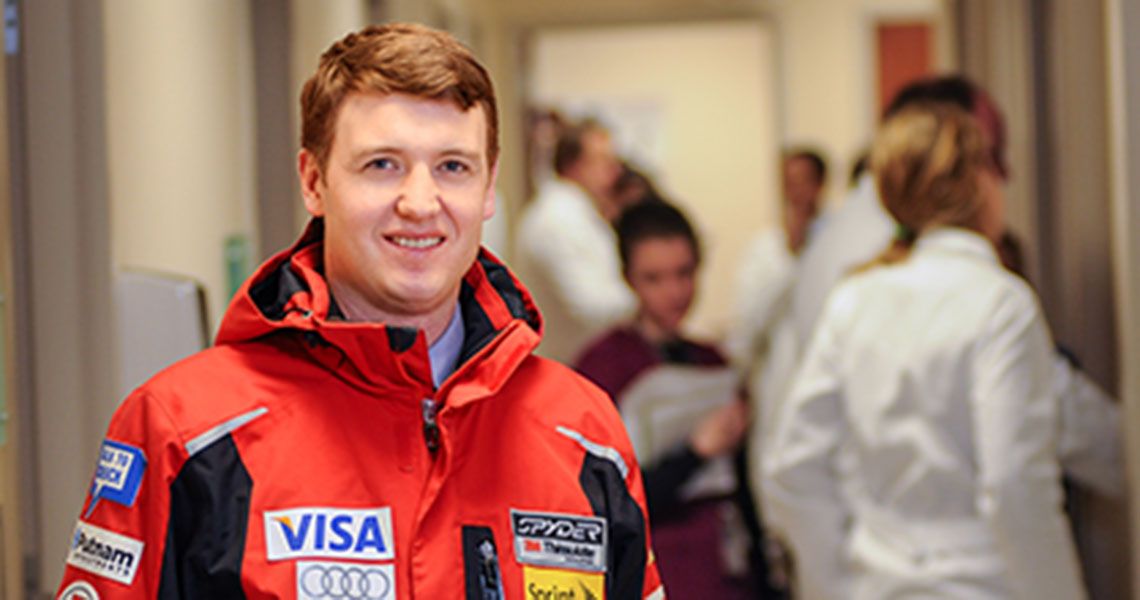As a member of the U.S. Ski and Snowboard Association Physician Pool, Scott Faucett — an assistant professor of orthopedic surgery in GW's School of Medicine and Health Sciences — provides medical assistance for the country’s top athletes. Though he is not currently in Sochi, Dr. Faucett has traveled to events such as the Burton European Open in Switzerland and the World Cup Race in Beaver Creek, Colo. Dr. Faucett discussed what it is like to be a doctor for the teams.
What is your role as a team physician?
Races occur year-round in many different places, usually at resorts abroad where the medical services are limited. They often don’t provide the same level of sports care or medical care that you would expect in the United States. So the role of the team physician is to act as a patient advocate to make sure that a high standard of care is being provided. We don’t have medical licenses to practice abroad, but we do know what to expect if our athletes were to be treated in the U.S. We advocate for the athlete and ensure that they get the appropriate care. If they can’t, then we help get them evacuated to the U.S. We also manage the safety and athlete assessments to make sure that they’re fit for competition and training.
What medical treatments do you perform for the teams?
We come with our own medical kit so that we can treat the athletes for everything, not just musculoskeletal problems — respiratory infections, skin infections, urinary infections, and so on. We bring equipment to sew up lacerations and do other simple procedures at the base. On the slopes, we carry a trauma pack that includes things that ordinary ski patrols might not carry. We carry the tools to insert in chest tubes and surgical airways, as well as do splinting.
Where are you stationed during the races?
During training, we spend a lot of time on skis either at the start of the race or in specific positions along the course. We may be located at dangerous turns or at the top and bottom of a half pipe. We have to know where all the danger spots are so that we can access the athlete, but we also need to make sure we’re located in a safe spot so that we don’t become injured. During the World Cup and at other major events, the course is protected, so we are typically either at the top or in a designated medical section.
Which injuries do you see most often?
For downhill skiing, it’s very common to have knee injuries like the one Lindsey Vonn suffered. There are also shoulder and chronic back injuries, as well as concussions. For snowboarding, we typically see shoulder, wrist, back, and head injuries.
Why did you pursue this field?
I think it’s fascinating to witness what human beings are capable of. Our main goal is athlete safety, and to make sure they don’t put themselves at further risk after injury by continuing to compete when it’s unadvisable. But many of the decisions go beyond the medicine. It’s not just recreational — these are people’s jobs. I once had a patient who fractured her tailbone during the snowboard cross event. The question was whether or not she could compete with the injury because she needed the points in order to remain qualified for the World Cup. The complexities surrounding the balance of athlete safety and performance fascinate me and motivate me to continue doing this work.



